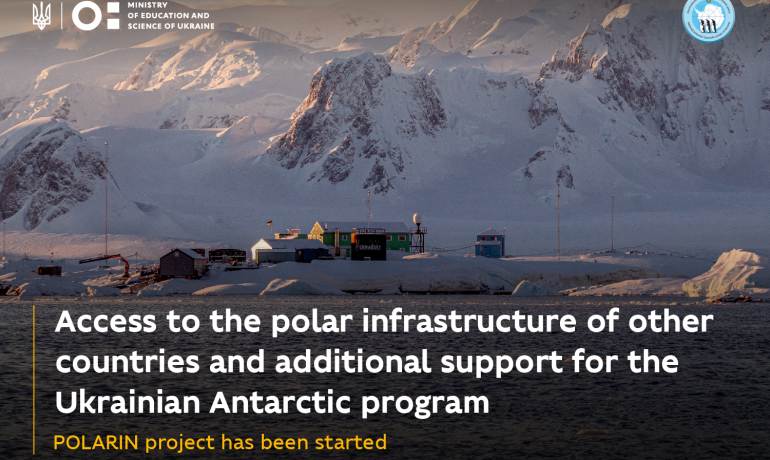Today, March 1, 2024, the EU Horizon Europe POLARIN project was officially launched, involving the National Antarctic Scientific Center and 49 other organizations from all over the world.
These are Polar research institutions from the EU, Chile, Canada, USA, UK and other countries. The project is coordinated by the Alfred Wegener Institute, Germany.
POLARIN envisages the unification of 64 research infrastructures in the Arctic and Antarctic and provides free access to them to all participants. Access can be either direct or remote.
In this way, they plan to support interdisciplinary research in both polar regions to solve global problems, including climate. Because it is these regions that are especially important for the climate of the entire Earth and are the first to respond to changes.
“What makes POLARIN special is that for the first time we offer access to research infrastructures in both the Arctic and Antarctic within one project. The created network covers all related fields of research – from marine and terrestrial to atmospheric. This is a unique and innovative approach”, noted Dr. Nicole Biebow, POLARIN coordinator at the Alfred Wegener Institute.
The network includes a wide array of complementary and interdisciplinary top level research infrastructures: Arctic and Antarctic research stations, research vessels and icebreakers operating at both poles, observatories, data infrastructures and ice and sediment core repositories. From Ukraine, two infrastructures are presented in the project: the Antarctic “Akademik Vernadsky” station and the ice-class RV Noosfera.
“This will allow us to attract additional international funds to the Antarctic program, and Ukrainian scientists will be able to use polar facilities of other countries and participate in important scientific initiatives,” explained NASC Director Evgen Dykyi.
Ukraine will join POLARIN in 2024-2025, and in general the project is designed for 5 years.
The project budget is 14.6 million euros, of which more than half a million euros are provided for Ukraine.
Recall that earlier the NASC received a grant from the Ukraine-Australia Research Fund to decode the genome of species found in Antarctic freshwater lakes.


